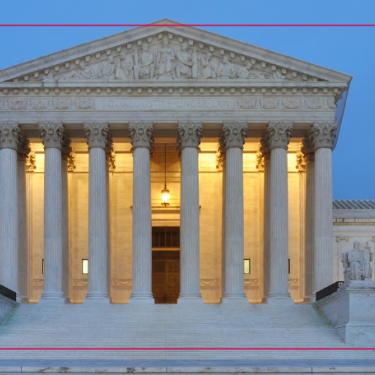U.S. Supreme Court must prioritize information integrity in Missouri v. Murthy decision

On March 18, the U.S. Supreme Court will hear oral arguments for Missouri v. Murthy, a case that will scrutinize the role U.S. government officials can lawfully play in influencing social media companies’ content moderation policies. Reporters Without Borders (RSF) warns that a decision by the Supreme Court strongly favoring either side of the case could risk Americans’ right to know and access to reliable information online, and urges Congress to introduce legislative safeguards for information integrity.
In the case Missouri v. Murthy, RSF once again cautions the justices against choosing between a false dilemma of extreme positions that could either preclude future legislation requiring tech platforms to serve the public interest and democracy, or would authorize companies to entirely self-regulate their platforms.
The Supreme Court must grapple with this legal question of which activities constitute permissible government speech and which constitute government coercion, or censorship. To address this question through the legislative process, Congress must pass a law drawing a line for permissible government activity that prioritizes the American people and their right to access reliable information essential for the functioning of a strong democracy. This legislation should establish transparent processes for government and industry to work together to safeguard information integrity online, complete with democratic safeguards and public accountability.
“No one wants to live in a world where tech giants or governments are the ultimate gatekeepers of the information we need. The Supreme Court should tread carefully here and put the public interest–and democracy–at the center of any decision it issues. That means upholding everyone’s right to access reliable information – including through the establishment of transparent legislative processes to safeguard information integrity online.
In May 2022, the attorneys general of Missouri and Louisiana filed a lawsuit, originally under the name Missouri v. Biden, against the Biden administration, alleging that federal officials had infringed on the First Amendment rights of the private citizen plaintiffs by “coercing” and “significantly encouraging” social media companies to remove certain, purportedly conservative-leaning speech, from their platforms. Biden administration officials had encouraged, but not explicitly forced, social media companies to remove certain posts, which mostly concerned misinformation and disinformation related to the COVID-19 pandemic and vaccines. The plaintiffs, whose posts were removed, argue this move represented a form of government censorship. In September 2023, the U.S. Court of Appeals for the Fifth Circuit upheld a prior district court ruling against the Biden administration, concluding officials had committed some forms of coercion and thus had violated the First Amendment.
If the Supreme Court rules firmly in favor of the plaintiffs, it will curtail the ability of a democratically elected government to advocate on behalf of its citizens. This outcome could harm the public as the government plays a critical role in providing information to help inform a private company’s independent decision-making process because it often has access to information and resources unavailable to private actors, such was the case with public health information during the pandemic. On the other hand, there must be limits on the power of the government to influence what citizens can and cannot say online.
The Supreme Court and freedom of speech
This term, the Supreme Court has also heard oral arguments for several other cases addressing similar questions of First Amendment rights on social media, including Moody v. NetChoice, LLC and NetChoice, LLC v. Paxton on February 26. In these cases, which scrutinize laws passed in Florida and Texas that have banned social media platforms from moderating certain content, it is up to the Court to decide whether the freedom to moderate content on social media is protected under the First Amendment and should, therefore, be safeguarded as a freedom of speech.
- Americas
- United States
- Legal framework and justice system
- International laws and governance
- Digital space and democracy
- Independence and pluralism
- Models and good practices
- News
- Advocacy
- Recommendations
- Authorities, international bodies
- Press freedom
- Freedom of opinion and expression
- Right to news and information
- Democracy
- Internet
- Platforms
- Technology
